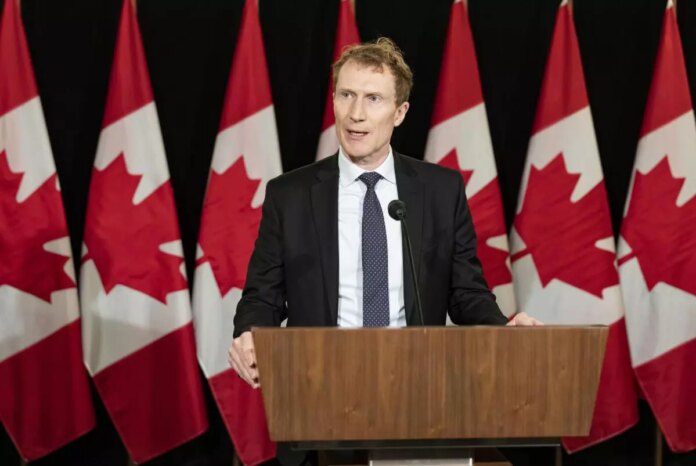Canada has announced it will introduce an immediate two-year cap on new international student visas to address the housing crisis and target institutional “bad actors”, a move that is likely to impact Indians planning to study in the country.
Immigration Minister Marc Miller said that under the cap there will be a 35 percent reduction in the number of new study visas in 2024. The cap is expected to result in 3,64,000 new permits approved in 2024. Nearly 5,60,000 such visas were issued in 2023. “The cap is for two years; “The number of permits to be issued in 2025 will be reassessed at the end of this year,” he said. “To maintain a sustainable level of temporary stays in Canada and ensure that the number of international students in Canada does not continue to grow in 2024, we are placing a cap on accepting international applications for two years starting in 2024,” Global News quoted Miller.
Also read | A closer look at the diplomatic standoff between India and Canada over the murder of Hardeep Singh Nijjar
“The move comes amid pressure from the provinces on the federal government for more people to enter Canada without permanent residency as the country grapples with a housing crisis,” CBC News said. On Jan. 14, Miller said a cap on international students was not a “one-size-fits-all solution” to the housing shortage across Canada. More than 8,000,000 international students were issued temporary study visas in 2022. Miller said in the fall of 2022 that the number in 2023 was on track to be more than three times the number accepted 10 years ago.
Preferred destination for higher studies
The move is expected to impact students from India who view Canada as a preferred destination for higher studies. India ranked first among the top 10 countries of origin of study permit holders in Canada in 2022 with a total of 3,19,000 students.
“It is unacceptable that some private institutions are taking advantage of international students by operating underfunded campuses, failing to provide support to students, and charging high tuition fees while significantly increasing international student intake,” Miller said. In some provinces, Miller said the overall reduction in permits will be about 50 percent. Provinces and territories are left to decide how approvals are distributed among universities and colleges within their jurisdiction.
In an interview with CBC News on Jan. 22, Miller spoke of “institutions that award degrees and give fake business degrees” to students hoping to stay in Canada. The minister said there could be “hundreds” of such schools in Canada and that the number has “exploded in recent years.” In addition to the cap, the federal government also requires international students applying for a residence permit to provide a letter of certification from a province or territory.
“These measures are not directed at individual international students,” Miller said. “They are designed to ensure that when future students arrive in Canada, they receive the quality of education for which they signed up and the hope that was offered to them in their home countries.” Miller also announced changes to the post-graduation work permit program .
As of September 2024, international students who begin a program that is part of a curriculum licensing agreement (one in which a private institution of higher education has received a license to offer the curriculum of an affiliated public institution of higher education) will no longer be eligible for a post-graduation work permit. Graduates of master's programs and other “short graduate courses” will “soon” be able to apply for three-year work permits, the government says. Open work permits are also made available to the spouses of international students in master's and doctoral programs.
“Diploma equivalent of puppy mills”
The changes announced on January 22nd come just over a month after Miller first announced measures on December 8th targeting what the minister described as the “diploma equivalent of puppy mills”. Conservative leader Pierre Poilievre said the blame lies solely with Prime Minister Justin Trudeau, calling the prime minister “incompetent.” “He is the one who gave the study permit. This is the responsibility of the federal government,” said Poilievre.
Also read | India-Canada relations and the 'Khalistan' issue: What will the BJP do in 2024?
Jenny Kwan, the leader of the New Democratic Party, also blamed Trudeau's “mismanagement.” She also warned that the new cap could “punish talented students who want to build a better life for themselves.” In a media statement, Ontario Minister of Colleges and Universities Jill Dunlop said her government recognizes that “some bad actors are exploiting these students with false promises of guaranteed employment, residency and Canadian citizenship.” The minister said Ontario has been discussing with the federal government “ways to combat these practices, such as: B. predatory recruitment”.
A statement from Nova Scotia's Department of Advanced Education said the province “needs to assess the impact of the changes made by the federal government once we have further details, including provincial allocations.”















